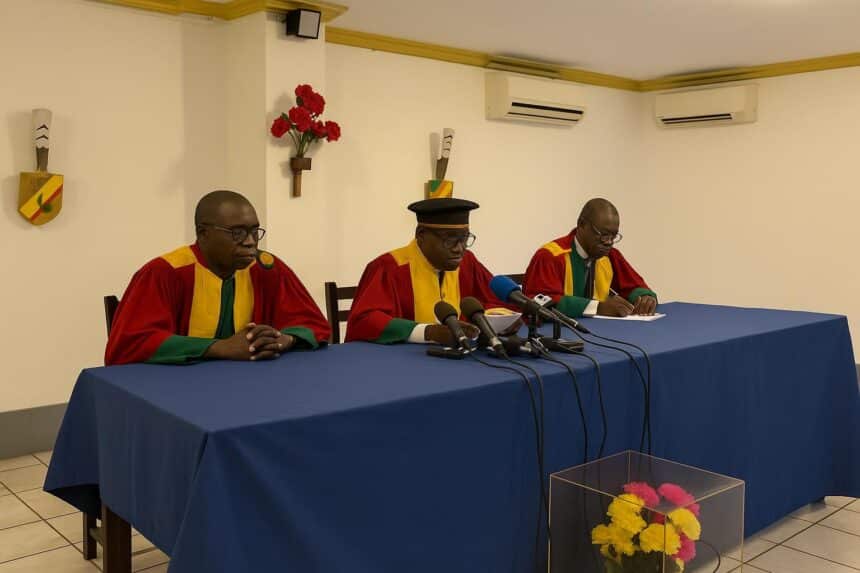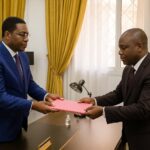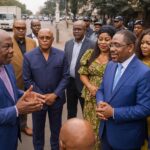Election Day Uncertainty for FECOHAND
The Congolese Handball Federation, known by its French acronym FECOHAND, had earmarked 16 August 2025 for the long-anticipated renewal of its executive bureau. Yet on the eve of the ballot, a fresh legal motion has cast doubt on whether delegates will even be allowed to sit.
At issue is a request for provisional suspension filed with the Chamber of Conciliation and Arbitration of Sports, the CCAS, by counsel for presidential hopeful Avicenne Nzikou. The application will be examined on the very morning the ballot is supposed to open.
Pending Verdict at the CCAS
The CCAS, an independent unit operating under the National Olympic and Sports Committee of Congo, serves as the country’s final arbiter in sports disputes. Its emergency sessions, sometimes convened hour to hour, can impose immediate measures without prejudging a case on the merits.
Lawyer Eric Ibouanga asked the chamber to halt the congress until alleged irregularities inside the Independent Electoral Commission, the CEI, are argued substantively. “The list of my client was disqualified in violation of a prior ruling of 13 October 2024,” he told reporters.
Judges postponed the hearing to Saturday morning to respect the adversarial principle and invite representatives of the Olympic committee, who, according to Ibouanga, had been duly notified yet were absent on Friday. A ruling could emerge only minutes before delegates reach the conference hall.
Legal Arguments and Electoral Rules
Central to the litigation is the October 2024 decision in which the CCAS ordered the federation to revise eligibility criteria and ensure transparent voter rolls. The complainants argue that the current CEI was constituted before these instructions were fully implemented.
Observers note that the 2024 sentence did not explicitly bar the existing commission but asked for “corrective adjustments” (La Semaine Africaine, 18 Oct. 2024). The federation contends it complied by expanding the voters’ list to include provincial leagues and women’s clubs.
Sports jurists consulted by this magazine underline that suspension orders are rarely granted unless an “irreparable harm” standard is met. Because the congress could still be reconvened within statutory deadlines, some believe the complainants face an uphill battle.
Historical Precedents in Sports Arbitration
This is not the first time Congolese sport has leaned on expedited arbitration. In 2018, the football federation faced a similar bid to suspend elections, yet the CCAS allowed voting to proceed after clerical errors were corrected overnight.
Regionally, Cameroon’s Court of Arbitration halted a volleyball vote in 2020, only to lift its injunction when parties signed a governance pact. Those cases underscore how swift, principle-based decisions can simultaneously enforce rules and keep sports calendars intact.
Stakeholders and Regional Implications
The handball portfolio may look parochial, yet federation governance matters across Central Africa. Congo, winner of the women’s African Cup in 1985 and host of the All-Africa Games in 2015, is again bidding to stage regional qualifiers for the 2026 African Games.
Stable leadership within FECOHAND is therefore considered indispensable. “Sponsors need clarity on who signs the contracts; athletes need clarity on who pays the bonuses,” remarked sports economist Paulette Okemba of Marien Ngouabi University.
Neighboring federations are watching closely. The Central African Handball Confederation schedules competitions based on national calendars approved by elected boards. A prolonged vacuum in Brazzaville could ripple through corridors in Yaoundé and Luanda, where joint youth tournaments are being negotiated.
Government Stance and Sports Diplomacy
The Ministry of Sports has publicly reiterated its neutrality, framing the issue as “an internal process governed by the Olympic charter”. Officials emphasize that the government’s broader sports diplomacy agenda, including preparations for the Francophone Games, remains on track.
Analysts stress that Congo’s track record of hosting international events bolsters its soft-power profile. A smooth resolution to the FECOHAND case would reassure partners such as the International Handball Federation, which recently granted Brazzaville a development grant for youth clinics (IHF communiqué, May 2025).
Scenarios Ahead for Congolese Handball
If the judges decline the suspension, ballots could proceed under tightened scrutiny from observers and the media. Should a stay be ordered, the congress would likely reconvene within a fortnight, after a revamped commission addresses the contested points.
Either outcome leaves Congo’s handballers eager to return to the court. The national teams begin qualification campaigns this October, and players interviewed at the Palais des Sports speak of “focusing on training, not paperwork”. The sport’s future now depends on a carefully worded judicial order.






















